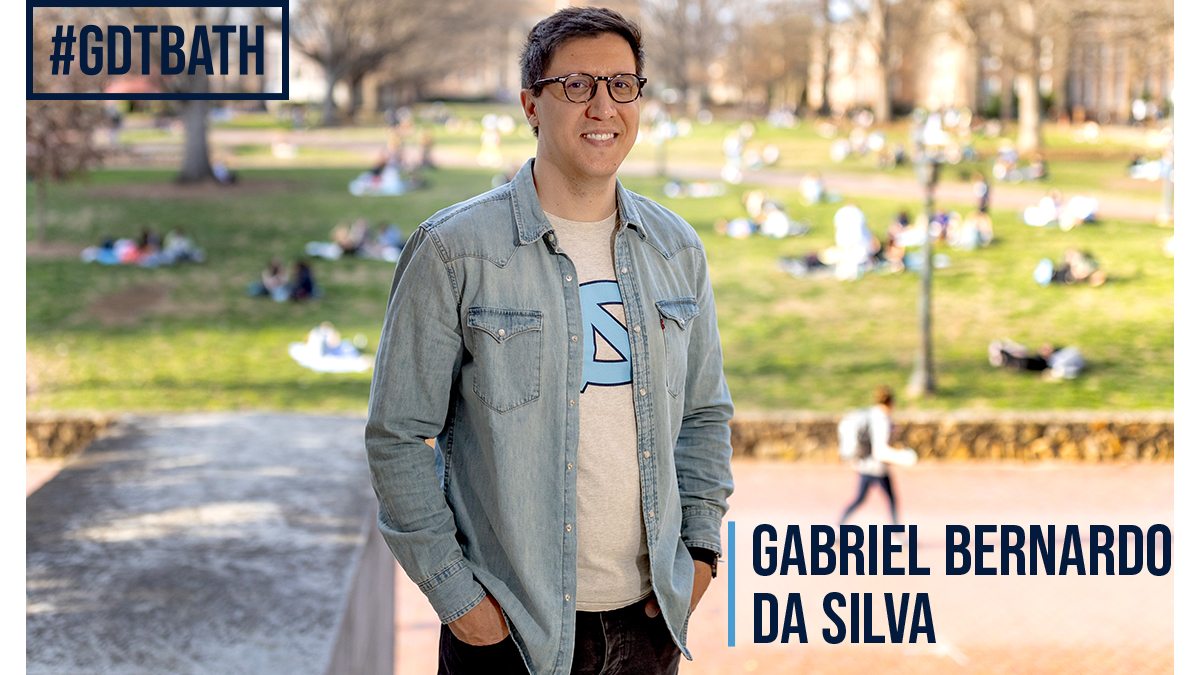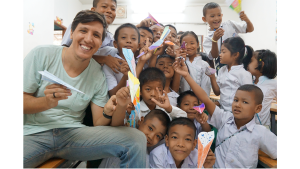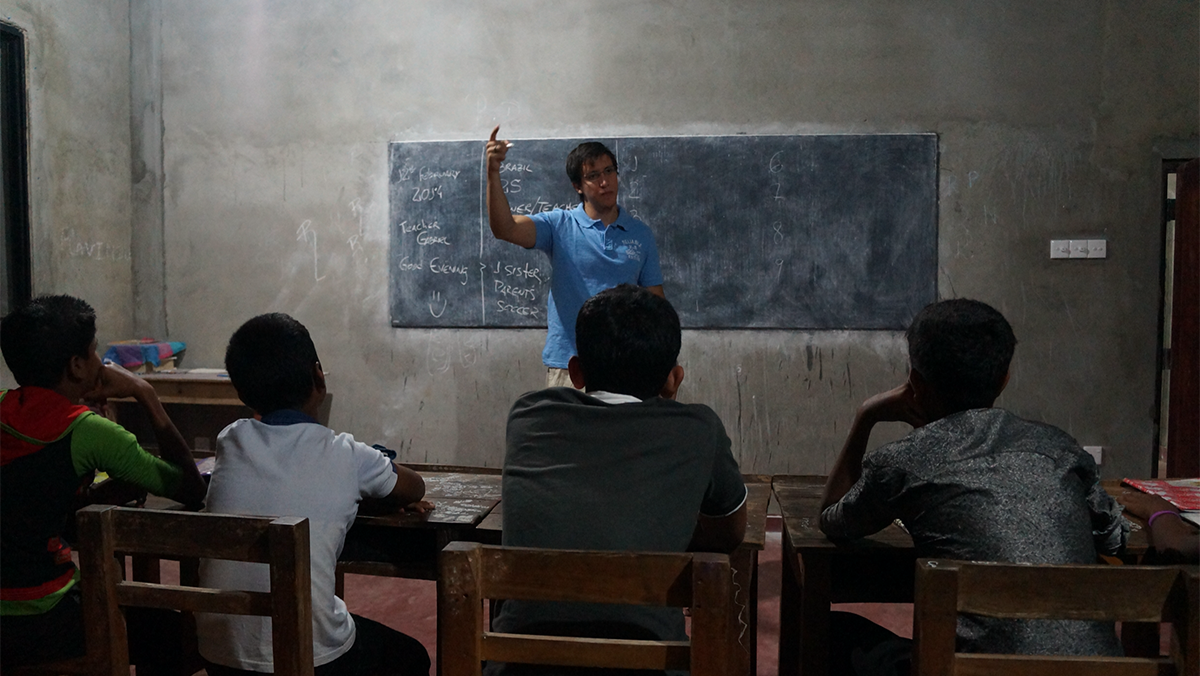#GDTBATH: Gabriel Bernardo da Silva
As a Tar Heel, graduate student Gabriel Bernardo da Silva is continuing to grow his passion for serving others.

For Gabriel Bernardo da Silva, opportunities to serve feel almost limitless.
He is driven by a passion for human and international rights and international law.
The native of Sao Paulo, Brazil, who already has earned multiple degrees, including in social science, political science and law, has followed those interests to Chapel Hill, where he is currently a fellow at the Duke-UNC Rotary Peace Center. He is working to earn a master’s degree in global studies from Carolina to learn how to better support migrants and refugees.
“Carolina emphasizes freedom of expression, and for me personally, it’s a motivation to use my voice,” says da Silva. “I want to build a better world for those who suffer and apply all the experience and knowledge gained as a Tar Heel.”
It is just the Tar Heel’s latest stop as he’s following his passion for serving others around the world. After completing years in school to earn five degrees, da Silva decided to take time off to volunteer abroad.

da Silva volunteering with a group of students. (Photo courtesy Gabriel Bernardo da Silva)
“Before starting a new chapter in my life, I wanted to take a year and give myself to others and donate my time,” da Silva says.
His first stop was working with the Marist International Volunteering group to help children affected by war and disaster in Sri Lanka. He taught English and worked to create a playful environment for the children.
“They have the right to be children and to develop themselves in a healthy environment even if everything around them was destroyed,” da Silva says.
He then traveled to Thailand to assist in a migrant camp for people entering from Myanmar. da Silva said that the migrants were impacted by a lack of economic development, so he worked to teach them not only English and computer skills but also soft skills for employment.

da Silva leads a class of students while serving in Sri Lanka. (Photo courtesy Gabriel Bernardo da Silva)
He said his trip to Asia was an impactful and eye-opening experience.
“In history, we have before Christ and after Christ,” da Silva says. “For me, it’s before Asia and after Asia.”
After leaving Asia, the Marist Institute asked him to help open a social work facility in Italy. When he arrived, he connected with the search and rescue operations to assist migrants and refugees crossing the Mediterranean Sea.
“At that time, I didn’t speak a word of Italian,” da Silva says. “It was a challenge because when you are responsible to start something from zero, it comes with a lot of anxiety and fears.”
He remained in Italy for more than three years and developed a system to restore and reunite displaced migrant families. His team successfully opened a social center to provide services, such as Italian language classes, career exploration opportunities and job formation to help migrants and refugees. This especially helped unaccompanied minors navigate the integration process with lawyers readily available.
He then returned to Brazil and began to reflect on his time abroad. Experiencing new cultures gave way to an enlightening perspective, he said. From eating different foods and wearing different clothes to learning a new language, da Silva was inspired to utilize the things he had learned and experienced by furthering his education so that he could continue to help more people around the world.
“It’s impossible to pass through one experience and remain the same,” da Silva says.
da Silva learned about UNC-Chapel Hill and the Rotary Peace Fellowship from a friend who had previously been a fellow. The Duke-UNC Rotary Peace Center fellowship program combines conflict resolution methods, peacebuilding and conflict prevention with an emphasis on more sustainable economic, political and human development. Fellows are chosen internationally for their potential to positively impact the world in their future careers.
As a fellow, da Silva is focusing on global studies to broaden his understanding of issues facing migrants and refugees.
“There are many things to take into consideration when learning about global studies: sociology, anthropology, economics and culture,” da Silva says.
Because of the impact of the pandemic, he spent his first year in the program, taking classes remotely from Brazil before arriving in the U.S. last July. Since he has been in Chapel Hill, he has started to create his place in the Carolina community and started honing his skills to continue to serve more people.
“I love being with people and I love seeing the environment,” da Silva says. “Carolina showed me that it was possible to be a student and think more holistically, not just methodically.”




